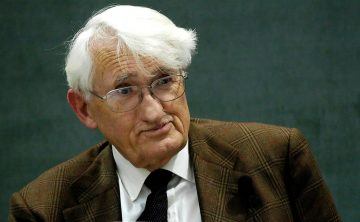 In Medium, first Seyla Benhabib responds to Raymond Guess piece in Point Magazine here. (Martin Jay responds in Point as well, here.)
In Medium, first Seyla Benhabib responds to Raymond Guess piece in Point Magazine here. (Martin Jay responds in Point as well, here.)
Raymond Guess next:
In about 1971, the colleague with whom I shared an office as an Assistent in the Philosophisches Seminar in Heidelberg, Konrad Cramer (later Professor at Göttingen), said something to me that stuck in my memory. One could, he said, go through the work of Habermas and simply strike out all occurrences of the word ‘transcendental’ (including in the expression ‘quasi-transcendental’), and if one did that, not only would the resulting text lose nothing, but palpable falsehood would often be transformed into truths. The only problem was that the result would be philosophically trivial. This observation, then, which was not original to me, is basically what I had to say specifically about Habermas in the book. I did him what I took to be the philosophical courtesy of treating his use of the word ‘transcendental’ as if it were serious and considered, and modelled on Kantian usage.
Geuss’s principal critique of Habermas is that the program of searching for “transcendental conditions of communication” is a philosophical failure. This is a perfectly legitimate philosophical disagreement but Geuss simply does not state the problem precisely. Habermas is NOT searching for transcendental or quasi-transcendental conditions of communication überhaupt; rather, in the tradition of speech-act theory, he is analyzing the conceptual presuppositions which we as speaking agents make in order for our utterances to be intelligible to each other. The distinction here is between “knowing what” and “knowing that,” or between implicit and explicit knowledge.
Guess’s last response here.
